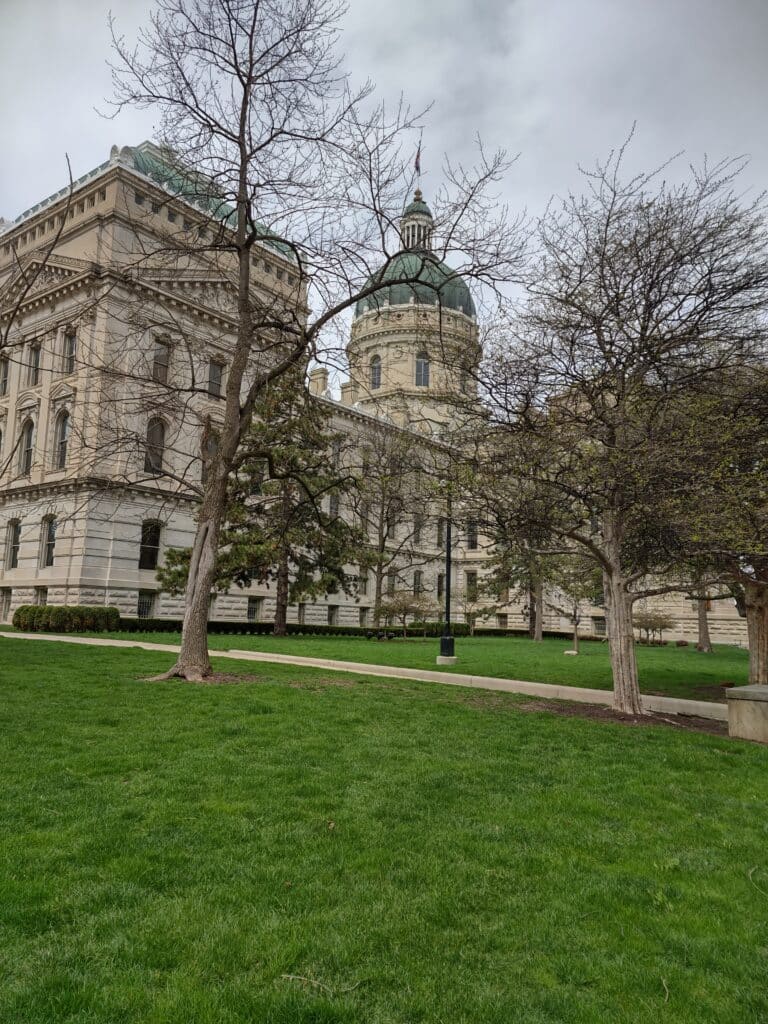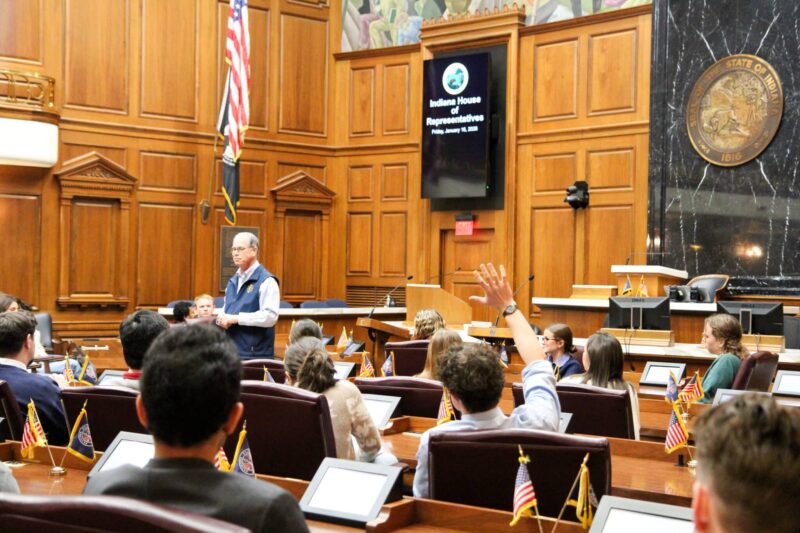Indiana lawmakers had been scheduled to reconvene in December to redraw the state’s congressional districts. (Photo/file)
This story was originally published by TheStatehouseFile.com
By Kate Breeden
TheStatehouseFile.com
April 23, 2025
The budget has been looming over lawmakers for the past week, with the $2.4 billion deficit at the forefront.
Late Wednesday afternoon, Republicans held a press conference that revealed a higher tobacco tax and numerous cuts in areas including public health and higher education.
Sen. Ryan Mishler, R-Mishawaka, a member of the state budget committee, broke down the budget.
There are $954 million in the K-12 formula, which leads to $861 million when you deduct vouchers. This additional money will be held for 2027 and used toward a universal voucher expansion.
Following the press conference, Rep. Edward DeLaney, D-Indianapolis, told TheStatehouseFile.com that “the increase to the vouchers, so that people making a quarter-million dollars can get a voucher, shows you what’s really going on.”
Gov. Mike Braun said that inflation played a huge factor in the budget deficit.
“I think they gave us a poor forecast based upon the things that happened maybe in national policies that preceded us over the last four years,” he said.
“I think way before we got the forecast, I asked agencies to find ways to save 5% because I think over the climate that we’ve had over the last four years, and we’re always a victim of it, was based upon borrowing and spending.”
DeLaney responded, saying, “I don’t think they’re very realistic by blaming Joe Biden. I think that’s dangerous in the sense that you need to focus on what your real problem is, not what you wish your real problem was.”
Mishler stated that from the 2023 budget, Indiana’s capital, general government spending and higher education spending all decreased by 1%. However, K-12 funding has stayed solid, taking up 47% of the state budget.
The budget will fully fund FSSA, DCS, and DOC, but lawmakers plan to take a percentage of the budget from year two and put it into a fund that the governor (with budget committee review) can augment back into those programs.
“We kept all the accountability and transparency that was in the Senate budget,” Mishler said. “We also took a hard look at a lot of the commissions that maybe hadn’t met and had big cash balances and did away with some of those.”
Medicaid went up 3% from 2019-2022 and is “eating into” the capital, general government spending and higher education spending.
After multiple cuts, the budget was still short, so the cigarette tax and a tax on tobacco will be raised and put in Medicaid. With the added tax, cigarettes will generate nearly $400 million a year, and other tobacco products will generate $250 million a year.
The big shock came on public health, which took a nearly 50% cut from $100 million a year to $40 million a year.
Higher education also took a 5% cut.
DeLaney was upset, saying, “The most important economic engine, in my view, in this state, is the public higher education. And to cut it in this environment, when Washington is taking away the money, is very destructive.
“That may be the single worst thing I heard today.”
Kate Breeden is a reporter for TheStatehouseFile.com, a news site powered by Franklin College journalism students.
📩 Sign up to have the top stories from around Indiana sent to your inbox every week.









